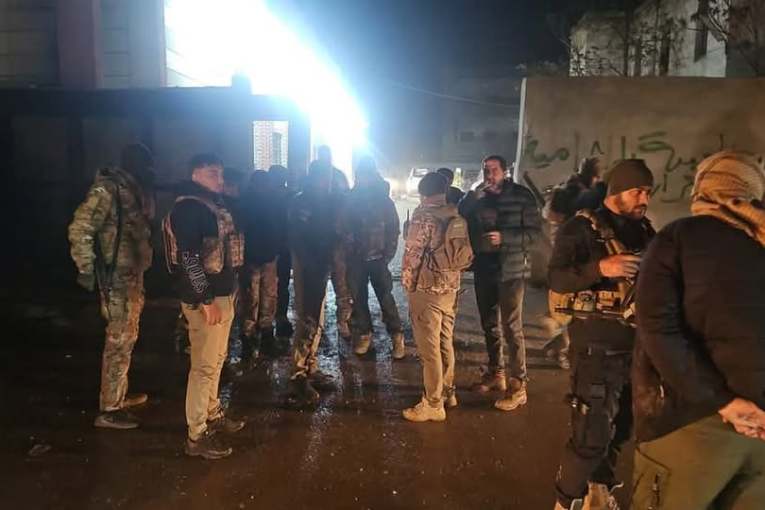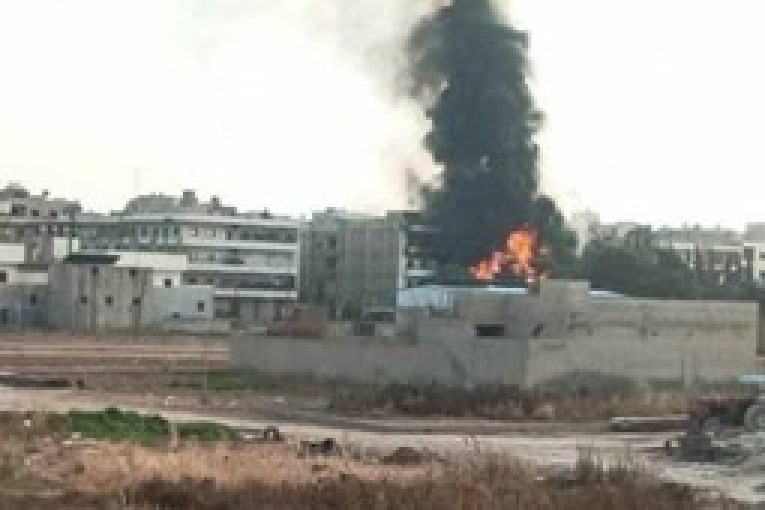
Afrinpost
Yesterday, Friday, the Self-Administration of Northern and Eastern Syria said that the language of the President of the Syrian regime, Bashar Al-Assad, on the Kurdish issue in Syria is in harmony with and flirting with the policies of the Turkish occupation, and this indicates that the system is not serious about a democratic solution in the country, and stressed that the project of self-management does not affect the values and unity of Syria.
Bashar said in an interview with Russia Channel 24, the day before yesterday, Thursday, that the Kurds in Syria would deny the existence of a “Kurdish issue” in the country, while the “Self-Administration for Northern and Eastern Syria” responded in a statement, Friday, by emphasizing that the language in which he addressed The “historical Kurdish issue in Syria” is in harmony with Turkey’s policies and flirting with it, despite all the latter’s practices, violations and breaches of Syrian sovereignty that the regime has always spoken of that no one will be allowed to violate them.
The self-administration continued in the statement that this approach “undermines the efforts of the solution and indicates that the regime is not serious about the topic of dialogue and openness to democratic solutions in Syria.” Self-management considers the Kurdish issue is an important part of the Syrian solution, and its solution within the Syrian framework contributes to achieving progress and change in Syria. According to the management statement.
The statement denounced the charges of separatism directed at self-administration, and stressed that the regions of northern and eastern Syria are the most defensive so far on Syria, its diversity and unity.
The statement included that “the resistance that appeared in Afrin for a period of / 58 / days against the Turkish aggression, as well as in Ras al-Ain / Sre Kanieye and Tal Abiad / Gre Spi, and years of resistance against ISIS, were only to prevent Syria from becoming a Turkish state (…) in the same time, the Syrian regime used to remain silent, as if what is happening in all these regions is outside the Syrian framework.
The statement noted that the self-management project is a Syrian national project that does not violate the values or unity of Syria, “contrary to the mentality of the regime and its policies and its neglect of the Turkish threat in particular,” and that this project proved that it maintains pluralism and diversity in northern and eastern Syria.
The administration pointed out that any targeting in any way to its regions is “to undermine these Syrian national gains, and it is only in the interest of those who want chaos for Syria and the rivalry between its components and division for its unity.”
The Syrian regime had blamed the Turkish occupation on the fifth of last February, because of its lie and the lack of implementation of the Adana Agreement, which showed at the time that the Syrian regime did not benefit from lessons during the past nine years, from financing Ankara and arming the Islamic militias affiliated with the Muslim Brotherhood, where it remains in search of implementing that fateful agreement whose primary goal was to harm the Kurdish people in Syria, and to fight them by the two regimes together, in order to prevent it from acquiring its legitimate rights within one decentralized Syria, in which one group does not dominate another.
After the occupation of their land, the Syrian regime prevented the people of Afrin from going to the city of Aleppo, even though all the people of Afrin hold Syrian citizenship, and most of them own homes in it.
Kurdish parties or “self-administration” have never called for a separation from Syria or the formation of an independent entity, as the Kurds seek, according to their political project, to distribute powers and establish a decentralized system, stressing that the reproduction of the previous system will mean a renewed conflict later.
On the thirtieth of November 2018, citizen (S,A) of the people of Afrin told “Afrinpost” that a government employee refused to give him his pension on the pretext that he must obtain his salary from America (referring to the Kurds’ cooperation with the international coalition to fight ISIS) , Which caused his salary to be delayed by several months, before he could get it back.
After the occupation of Afrin, the security services continued to pursue Kurdish politicians in Aleppo within the areas of his control, and in this context, a 60-year-old Kurdish citizen from one of the Kurdish parties stated that he was arrested and insulted by a checkpoint of the so-called “Military Security” on Entrance to the city of Aleppo, where he was arrested for more than 10 days, and he was tortured on the pretext that they were making plans for the “People’s Protection Units”!
Russia and Turkey were able to achieve a deal at the expense of the Afrin region, and areas in Damascus and Homs countryside, when it was agreed by Russia to invade Afrin, in exchange for Turkey’s evacuation of areas controlled by militias supported by it in the vicinity of Damascus, and transferred to Afrin in order to change its demography and elimination On the Kurdish region.
The Turkish-Russian deal provided a great advantage to the regime through the (Sunni incubator) branch in the vicinity of the capital, Damascus, where the head of the Syrian regime, Bashar al-Assad, was able to visit Eastern Ghouta on the eighteenth of last March, that is, on the day of Turkey’s occupation of the Kurdish region of Afrin, a visit that did not One of the regime’s officials was able to do it during the past years, as a result of the control of the Islamic militias affiliated with the Muslim Brotherhood.
Since the occupation of Afrin in March 2018, the Syrian regime has not allowed Kurdish citizens whose restrictions belong to Afrin to go to Aleppo, where hundreds of elderly citizens and women have been returned from their checkpoints on the outskirts of Aleppo to the city of Tal Rifaat in the northern countryside of Aleppo






